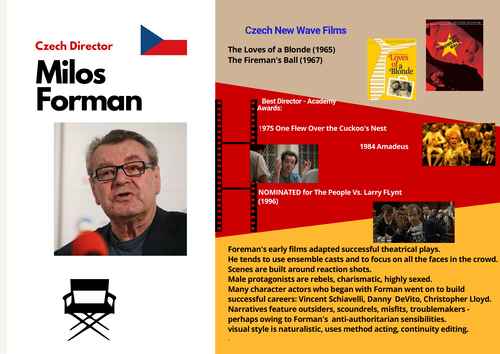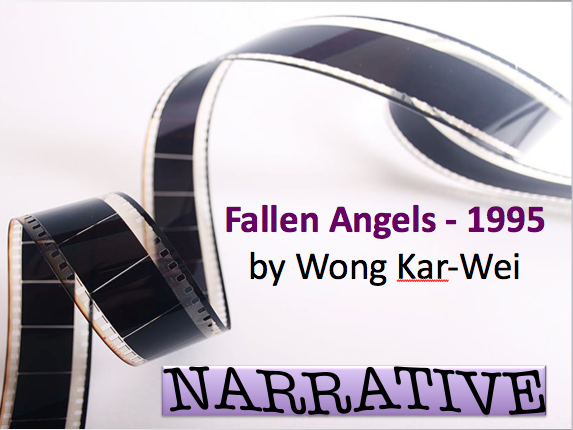56Uploads
12k+Views
2k+Downloads
All resources

TIMBUKTU - a film by Abderrahmane Sissako (2014)
This 40-slide full colour Power Point Presentation allows for a diverse range of topics to be studied. It covers history, culture, religious themes and filmmaking/media studies.
The film is about the destruction of culture and heritage, as well as occupation/colonialism, religious freedom, and human rights. The presentation also focuses on the film and its production, including representations and issues addressed by the filmmaker.
The film was produced to include the languages of the region in which it is set, including French, Tamasheq, English and other African dialects.
This resource facilitates rich discussion on topics such as: historical events, religious law, the value of cultural preservation and women’s rights.
It is appropriate for students aged 16 - 18. The violence of some events could be triggering for younger years.

What is Tolerance?
This exercise provides interactive discussion prompters and tasks that help students to reflect carefully on what they think tolerance really means. It should form the basis for two 1-hour lessons, for secondary students between ages 14 - 18.
The aim is to foster a critical discussion about tolerant societies, and to help students to reflect upon whether there is a distinction between tolerance and cultural/ moral relativism.
How can tolerance be a principled approach that is fair to both individuals and communities?
Is tolerance fair to **all **citizens?
Does a tolerant state promote genuine** intellectual** diversity?
How can a state promote tolerance without becoming an intolerant state, i.e. without promoting censorship of controversial ideas?

Understanding Tolerance Presentation
This is a full color 27 slide animated PowerPoint presentation. It forms the basis of an assembly or a full two hour lesson (depending upon time taken for class discussion/debate).
It is a very interactive tool designed to prompt discussion and debate and to get youngsters thinking for themselves and reflecting on the complexities and problems associated with tolerance. It encourages them to actively define tolerance, and to reflect upon their definition, based on careful analysis of real life cases and examples.
This lesson can be used can be used in an American or British context. It would work with a wide variety of age groups and can help in teaching citizenship, PSHE, RS, or British Values.
It could also work well as a starter exercise for the study of Liberalism (politics).

Cinema Vérité: a Revolution in Documentary Style
This is a** fully animated** and illustrated (with helpful links integrated) overview of the Cinéma Vérité film movement, comprising 44 slides. Useful for teaching the EDUQAS A-LEVEL in FILM STUDIES (Documentary Component) as well as the IB in Film or Media Studies. The content covers how Cinema Verite ** evolved in the United States, UK, Canada and France. *A- Level FIlm Studies Tutors can use this for two entire lessons.
The PowerPoint presentation is to be used over a two-hour lesson and includes breaks for discussion and feedback, as well as the option to use the built-in links to video clips / examples. The presentation includes pictures, text, exercises and video links.
It is useful for teaching at A-Level, the International Baccalaureate, or as an introductory lesson at University Level.

Milos Forman Auteur Director Poster
This full colour poster outlines Czech-American film director Milos Forman’s key directorial attributes and achievements.
Perfect for the Auteur study question on the Eduqas Film Studies A-Level curriculum.

Scottish Identity in TRAINSPOTTING
This study of the 1996 film TRAINSPOTTING by Danny Boyle explores how Scottish identity and culture are represented in the film.
This is a 46 Slide PowerPoint Presentation and it comprises sufficient material for a comprehensive lesson plan. This is useful for media studies, film studies and cultural studies. The resource explores how stereotypes, identity and representations are constructed in a media text.

Eduqas A-Level Film: Taxi Tehran (Contextual Study)
This full color, animated, interactive PowerPoint Presentation includes 49 slides with detailed discussion of context for the 2015 film. The context closely follows the Lisa Wardle Textbook to prepare A Level film studies students for the Component 2A. examination question. There are practice questions, exercises, and discussion prompts to get students involved in an interactive lesson. The resource should cover a full two hour lesson.
In addition this resource can be used for a contemporary cultural study of life in Iran. Panahi is an internationally celebrated director whose work (including Taxi Tehran) has won critical acclaim and major awards. This film offers a “way in” to Iran including its theocratic regime, its history and its artistic culture.
Themes explored: Women in Iran, Ethnicity, Representations of generational differences, history, crime & punishment, political dissent and its consequences and the nature of filmmaking itself.

Fallen Angels (Wong Kar-Wei) - a narrative study
This fully animated, interactive 20 Slide illustrated Power-Point presentation forms the basis of a lesson, ideal for a post-screening discussion of narrative in Wong Kar-Wei’s 1995 Hong Kong New Wave film FALLEN ANGELS. The presentation provides several opportunities to pause and discuss aspects of narrative in the
film and encourages students to think about the ways in which Wong’s cinema breaks away from conventional genre storytelling methods.
The presentation is ideal for the Global CInema / Experimental Cinema component of EDUQAS Film Studies A-Level or for any film studies course interested in Hong Kong New Wave, Auteur studies, or Global Cinema.

The Cinema of Wong Kar-wei: an introduction
Suitable for teaching the EDUQAS FILM STUDIES A-LEVEL, this resource comprises a 23-slide presentation giving an overview of the distinctive features of Wong Kar-wei’s films. Useful for the EDUQAS A-LEVEL film studies Component 2: Global Filmmaking perspectives, Section D, Modern Experimental Film, this resources is fully animated and contains links to illustrative You Tube videos.
This presentation provides an introduction to the cinema of Won Kar-wei and works well as background / contextualisation of CHUNGKING EXPRESS or FALLEN ANGELS.
time: 1 hour

One Flew Over the Cuckoo's Nest - Close Analysis
This Resource is a 44 Slide interactive PowerPoint Presentation offering students a lot of room for discussion and debate around the identity politics within the film, as well a the contextual issues that would have influenced the narrative and the filmmakers (as well as the novelist).
Students are encouraged to reflect and to discuss, activities get them involved in dissecting the film’s meanings - both literal and subtextual.
Perfect revision for the Eduqas A-Level Film Studies Component 1A. Paper.
https://resource.download.wjec.co.uk/vtc/2017-18/17-18_3-7/eng/sam2-component-1.pdf

'Captain Fantastic' Scene Analysis
For Eduqas A Level Film Studies, this 43-slide full colour interactive presentation prepares students to analyse how cinematography and mise-en-scene are used to convey key narrative meanings. Students are encouraged to question, discuss and share their own thoughts and there is a strong emphasis on uses of cinematic terminology as well as analysis and exam preparation (with a practice exam question).
Sale

Billy Wilder - Auteur Poster
This colourful poster outlines the key ‘signature’ features distinctive of WIlder’s films It makes an attractive classroom display that also provides helpful memory prompts for Eduquas A-Level Film Studies Students who are sitting the Component 1. Exam Paper.

Religious Studies: Marriage & the Family
This 30 slide full-colour interactive powerpoint presentation informs students about religious beliefs about marriage and the family. Topics covered include the Muslim and Christian marriage ceremony as well as Civil Partnerships, definitions of marriage, arranged marriages, reasons for marriage, roles in marriage, vows, the nature of families, cohabitation and same-sex marriage.
The resource helps students to prepare for the GCSE Exams in Religious Studies as well as helping students of religious faith to understand the rite of marraige and how religions and non-religious people view it.
The resource offers lots of discussion prompts to encourage class discussion.
This resource could be used as a two-hour lesson.

RELIGION, HUMAN RIGHTS & SOCIAL JUSTICE
Ideal for teaching and revising the
AQA Religious Studies A, Component 2 – thematic studies
Theme F: Religion, human rights and social justice (GCSE).
This 56-slide PowerPoint presentation covers the AQA curriculm and textbook’s main definitions and helps
GCSE students prepare a good set of answers for the exams.
It will encourage critical thinking about the examination board’s definitions and assumptions at certain points, but will not prevent students from saying the “right” answers needed to pass the examination.

Christianity, Crime and Punishment
This 23 slide full colour animated PowerPoint Presentation introduces students to the **Christian outlook on crime & punishment (including the concepts of retribution, deterrence and rehabilitation).
It offers an open and questioning approach that allows students to weigh different outlooks and consider the concept of ‘crime’ and the reasons for punishment.
It prompts discussion and can be used to stimulate reflection.

Fish Tank (Andrea Arnold, UK, 2009) HOMEWORK QUESTIONS
Useful for the EDUQAS Film A-Level.
12 questions covering representations, class, ideology, narrative and ‘the female gaze’.
















